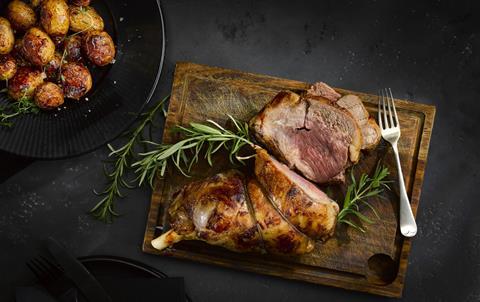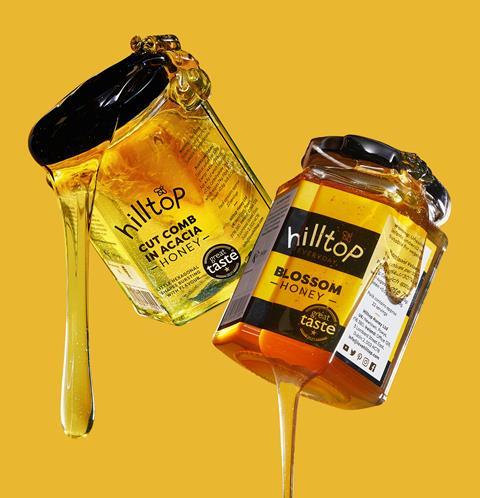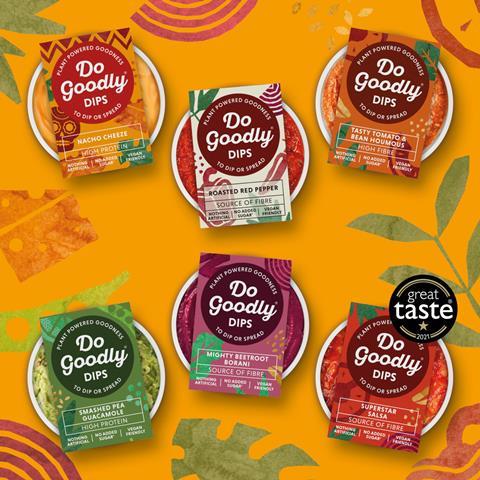With British consumers increasingly seeking reassurance and transparency on the origins and production of their food and drink, a study in Wales has highlighted how important this has become – and how it translates back down the chain to the country’s producers.
Quality and provenance are two descriptors commonly sought out by today’s food and drink shoppers, even amid straitened financial times. As noted in an article in The Grocer’s sister magazine Food Manufacture, more than two-thirds of consumers want to know where their food comes from and seek the reassurance given by the production transparency and traceability of their foods.
A knowledge of provenance also has an association with better quality in the minds of shoppers, while the growing focus on food miles and sustainability means they are increasingly attuned to the environmental sensibilities of the origins of their food and drink and are often keen to support local sourcing, better carbon footprints and lower waste.
What’s more, as noted in a recent blog by boyum IT, country of origin is among the extrinsic ‘quality cues’ consumers use to evaluate a product. And, as this year’s Food & Drink Expo approaches, there is significant emphasis on the importance of provenance in “a landscape where fresh and local is now a big selling point”.
With this in mind, food and drink manufacturers and retailers are increasingly using a provenance narrative to engage with their retail customers and with end-consumers.
Proof in the pudding
A study in Wales has uncovered the real depth of feeling consumers have towards local provenance and the quality associated with locally produced food and drink.
Undertaken on behalf of the Welsh Government, the research aimed to explore the attitudes and perceptions of shoppers relating to the provenance of food and drink – particularly Welsh food and drink – and was taken beyond the Welsh borders to include 1,000 shoppers of English and Scottish origin, as well as 400 shoppers of Welsh origin. Most importantly, it clearly identified that local provenance is important for British consumers.
Key findings from the research included:
- Shoppers in Wales and Scotland placed the same emphasis on buying local food and drink, with 78% rating local provenance as important, while in England the figure was slightly lower at two-thirds of shoppers
- Among English and Scottish shoppers three-quarters said stocking a great range of brands with provenance from England, Wales and Scotland was important to their selection of retailer.
- In fact, English shoppers surveyed were shown to have a strong affinity to Wales with one in five (20%) feeling “partly Welsh” and one-third of English shoppers more likely to buy a product if they saw ‘Welshness’ on a pack.
- 96% of English and Scottish shoppers said they planned to buy the same or more products with specific provenance over the next six months.
- And more than 50% of visitors to the country from England and Scotland, when they go home, would like more Welsh products available on menus when they eat out.
The study also identified that much of the perception of Welsh products is naturally bound to the perception of Wales as a country and holiday destination, with 8.71m visits to Wales from England each year. For English shoppers, the Welsh landscape and countryside dominate their view of Wales, which resonates strongly with a view that Welsh products are natural and fresh. In fact, across GB, 42% of consumers associate Wales with natural food and drink, compared with the overall figure of 33% for GB.

Quality in action
All of this is, of course, great news for Welsh suppliers, who are aiming to take their message to the broader UK and international stage. Welsh Lamb is already well known and well perceived both in the UK and internationally, but the fact that there are 700-plus food and drink manufacturers in Wales comes as a revelation to some buyers.
For Lesley Griffiths MS, the Welsh Government’s Minister for Rural Affairs and North Wales, and Trefnydd, the continued success of the industry is reward for the hard work which has gone into raising the profile of Welsh food and drink businesses outside of Wales.
The Minister said: “At last year’s BlasCymru/TasteWales producer and buyer showcase event [which took place on 25-26 October], it was great to see the strength of the supply base, and the diverse range of goods that were on offer, with over 200 new products being showcased at the flagship event.
“The most recent figures show food and drink exports from Wales have grown by almost 25% in recent years, so there is clearly an appetite for Welsh brands beyond its borders. Research such as the Value of Welshness report underlines the fact people value the provenance of our food and drink, and we want to build on this.”
Indeed, Welsh whisky has recently come on the international media radar and has highlighted Welsh producers’ increasingly avid pursuit of recognised quality via GI and protected food name status. But there are many producers – from artisan businesses to larger firms, which are benefiting from the Welsh Government’s support for a vibrant and thriving industry.
Case studies

Sweet news at Hilltop
Hilltop, based out of Newtown in mid-Wales, has grown to become the 2nd honey brand in GB within 12 years of being established and is seeing incredible growth, with value up £2.4m [Nielsen] in the last year alone.
Scott Davies, founder of the brand, says that, from the outset, the community, Welsh Government and local authorities wanted to help the company and he reaped the benefits of this support early on via half-day courses on accounting, marketing and business as well as the help of a start-up grant.
The Great Taste award-winning company is now supplying all the major retailers with product either nationally or locally, and won distribution space in Tesco early last year with its Manuka Honey. Plans for 2024 include building awareness of its chilli-infused Hot Honey, which is landing into Tesco in February, and moving into the beauty industry with energy gels and lip balms.
“We’re trying to position honey in a new light. It’s super high energy and good for you,” says Davies. “Yes, it’s sugar, but it’s good sugar with all the extra benefits from the nectar.
He agrees that quality and provenance are key, saying that consumers will pay for something they believe in. “But you have to stay true to those words, because consumers are clever at finding things out,” he notes. “So you have to be able to walk the walk and talk the talk.”
Natural progression for Do Goodly

Plant-based products are the focus at Do Goodly Dips, formed in 2021 and already trading with Tesco, Morrisons and selected farm shops and delis. Co-founder Richard Abbey, who developed the products in conjunction with well-known chef Scott Davis, reveals that the company’s goal was always to make familiar products “with a bit of a twist”. Hence the dips include a Smashed Pea Guacamole, Great Taste award-winning Superstar Salsa and Nacho Cheeze, among others. They contain no artificial ingredients, are gluten-free, provide fibre/protein and are healthy, feeding into the natural qualities sought out by today’s consumers, says Abbey.
He notes that the company has had some “amazing support” from the Welsh Government via a grant when it first started out and through trade events and training with the help of government-funded support organisation Cywain. In addition, the Food & Drink Wales Trade Development Programme assisted the company with its introduction to multiple retailers.
Other highlights to date include winning Food & Drink Wales’ Start Up of the Year award in 2022.
Beyond the quality of the products, Abbey says the ‘Do Goodly’ philosophy extends to making them have a naturally longer shelf life to avoid food waste, using only recyclable and, where possible, recycled packaging, while the company gives 10% of its profits to mental health charity MIND.
Plans for 2024 include further innovation in existing and new product categories this spring/summer and Abbey is also in discussions about international expansion.
Wales prides itself on the support it gives to its food and drink suppliers, with a strong belief that it is the best place in the UK to start up or grow a business, given the wide breadth of support on offer. From Food & Drink Wales to Cywain, world-class Food Technology Centres, free or heavily subsidised skills coaching, and the government’s Insight Programme, which offers market data and future trends, businesses are broadly supported and encouraged in their efforts to produce quality food and drink with a proud heritage.
Meanwhile, the country’s Food & Drink Wales Trade Development Programme offers buyers a specialist interface with impartial advice, insight support and events to identify suppliers suited to their needs.



















